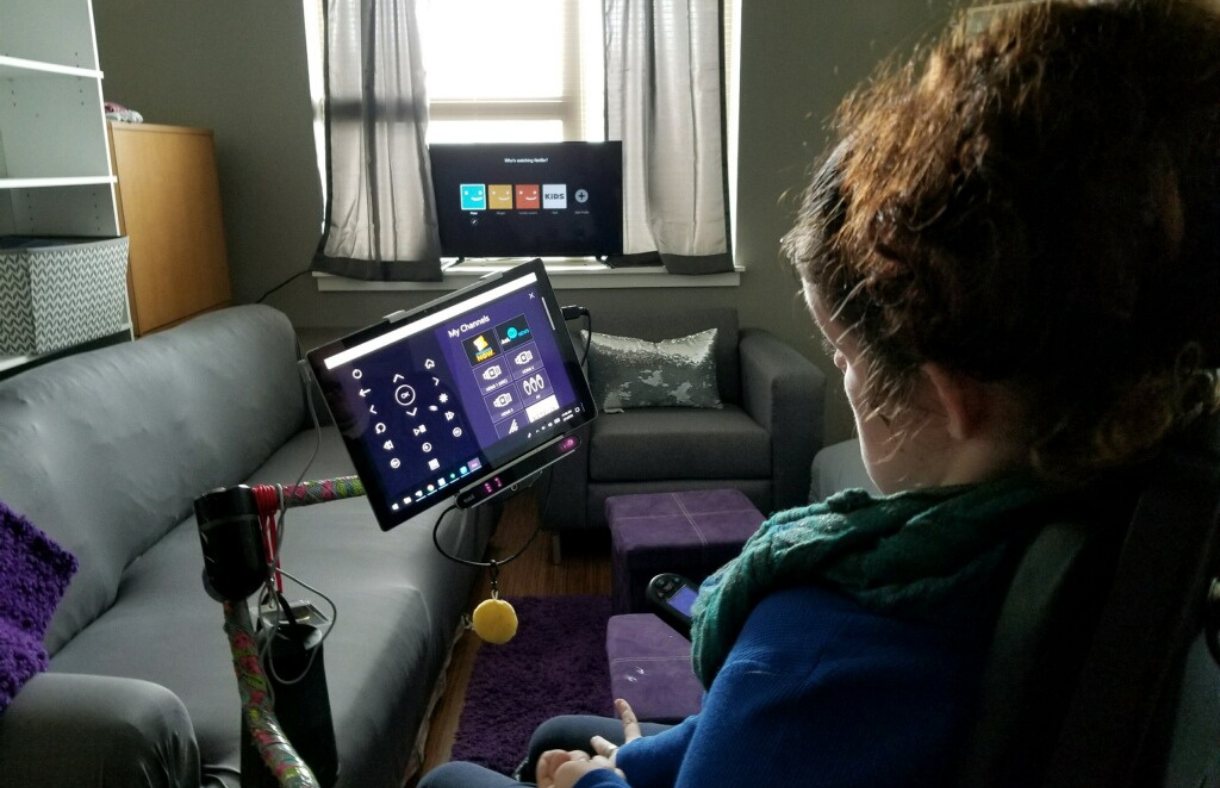November is National Family Caregivers Month. There are over 37 million family caregivers in the U.S.
When you’re the primary caregiver for a family member with disabilities, it can be hard remembering to take care of yourself, too. And there are extra challenges during holiday season, when even non-caregivers often try too hard to make things “perfect.”
Today, we salute family caregivers by sharing tips for making Thanksgiving a little easier, and a little happier.

Let Everyone Help
Caregivers often find it hard to “let go” by delegating chores. But your family would rather see you cheerful and relaxed, than worn out and grumpy from singlehandedly creating a Pinterest-perfect event. And often, family members—including your care recipient(s)—are eager to help.
Says Andi Fry, BridgingApps Coordinator for Montgomery County Outreach and mother of a 26-year-old daughter with cerebral palsy:
“People with disabilities are always longing to be included—in everyday tasks, in conversation, in decisions. Being in a wheelchair and non-verbal hasn’t stopped Megan from contributing to our Thanksgiving celebration. When she was little and had more dexterity in her arms and hands, she would hold a mixing spoon with assistance, and help stir milk into the mashed potatoes. And she helped Grandma with pie-making, squishing little balls of dough into shapes that Grandma would add to the top of the pie. Meg was so proud to see it come out of the oven.
“When she got older and more tech-savvy, she made place cards for the table, personalizing each font: big block lettering for Granddad, swirly cursive for Grandma. Her big sister helped print the cards, cut them to size, and add greenery from the yard.”
Now, Megan handles much of the Thanksgiving guest list, “emailing everyone, and coordinating who is bringing what. She also creates the music mix that plays during the meal, taking into consideration everyone’s favorites.”

Give the Gift of Decision-Making
Megan is fortunate that her family has always encouraged her to join in. Too many family caregivers have the habit of telling disabled family members what’s “too hard for you.” Regardless of age or ability, what people hear is, “You’re too weak/stupid/clumsy to try what interests you.” Caretakers who make all the decisions, and otherwise do too much, hurt others’ holiday spirit as well as their own.
Try asking care recipients how they’d like to help: they may come up with ideas you’d never thought of. If you aren’t ready for that, at least give them options to choose from:
- Decorating the house, indoors or out
- Setting the table
- Greeting guests at the door
- Introducing games and activities
And if your disabled family member would rather not help—or if they need more assistance than you have time to give? You can still delegate caregiving to a third party, “someone who will hang out with the person with the disability,” says Andi. “They can work together to bring their own joy to the day. What’s important is to bring the family together and promote togetherness.”
Remember the Thanks
And finally, always keep the “thanks” in Thanksgiving. Among other blessings, be thankful for your special family member and for the privilege of being a caretaker. And, absolutely, encourage care recipients to share their thanks.
“Every year, Megan gives the first toast before we start eating,” says Andi. She loves “talking about all the things she is thankful for.”

